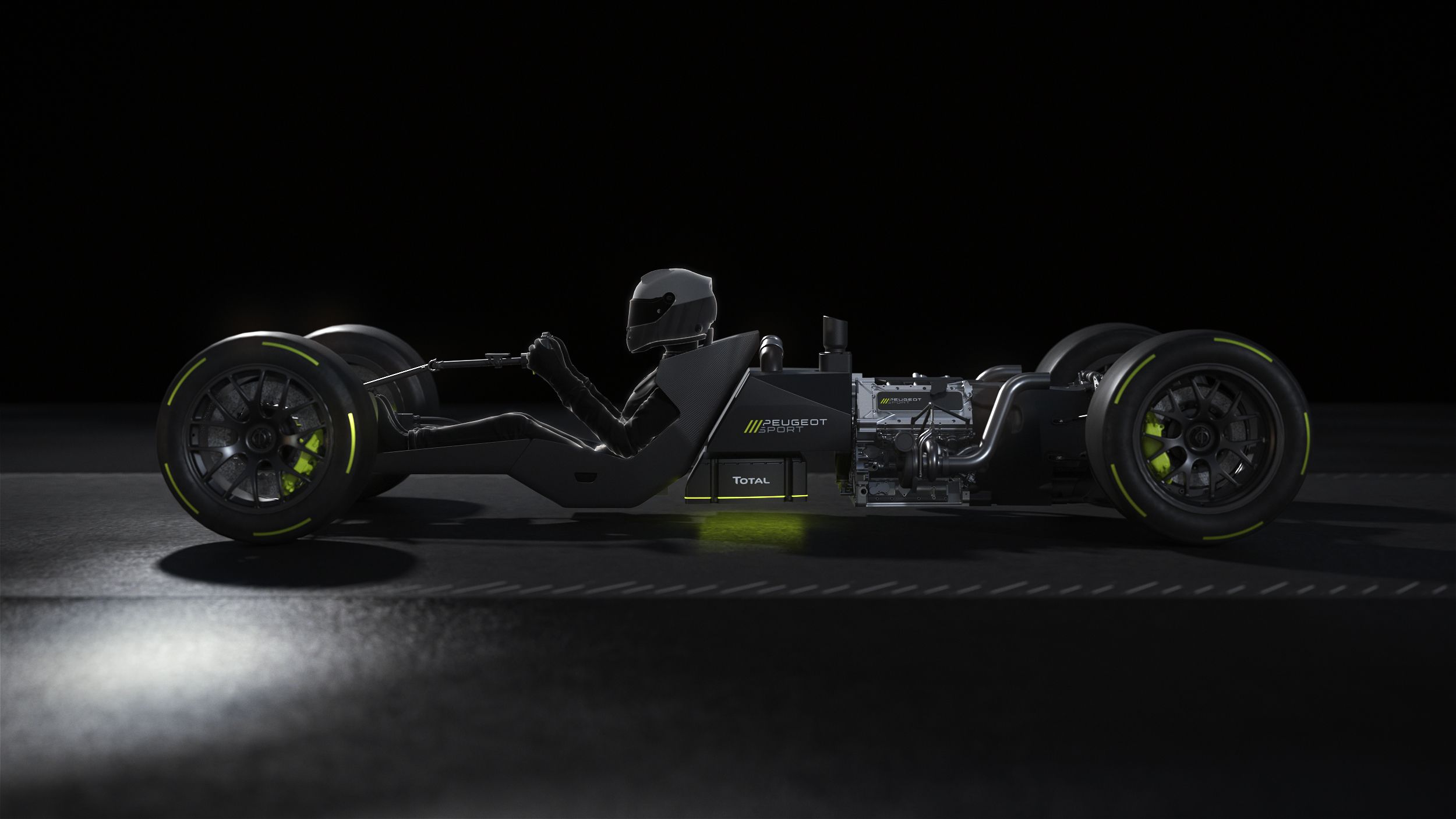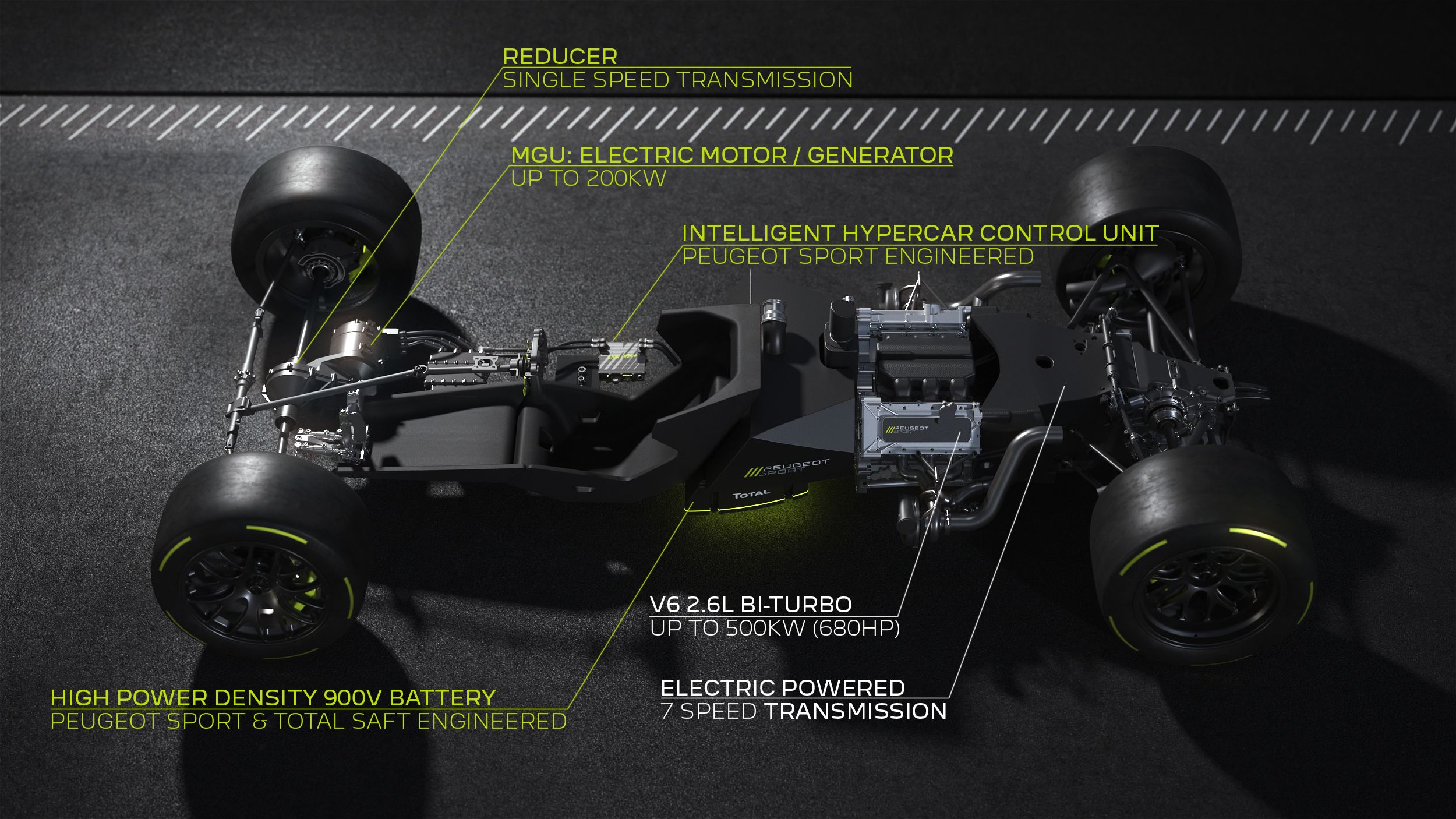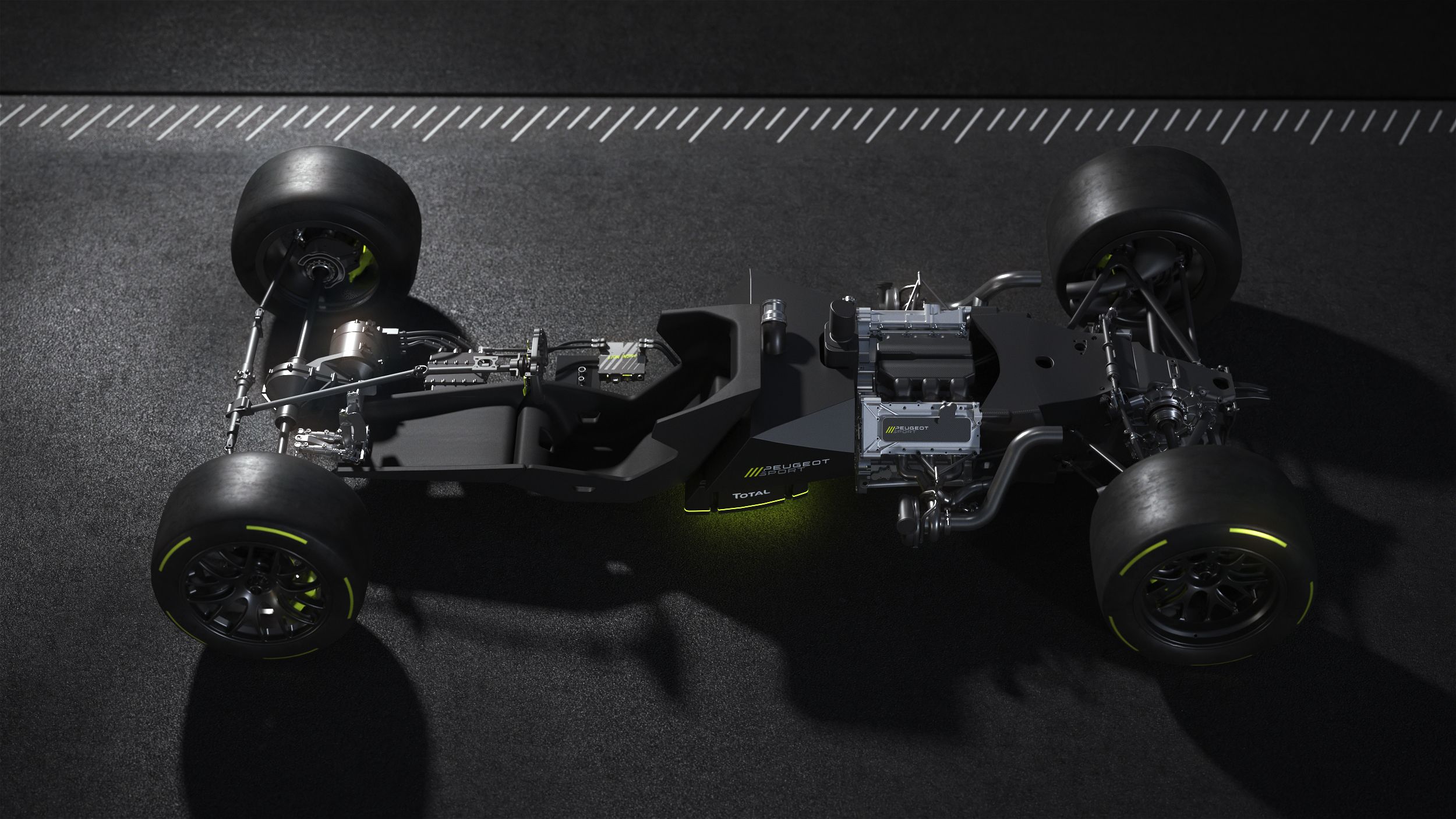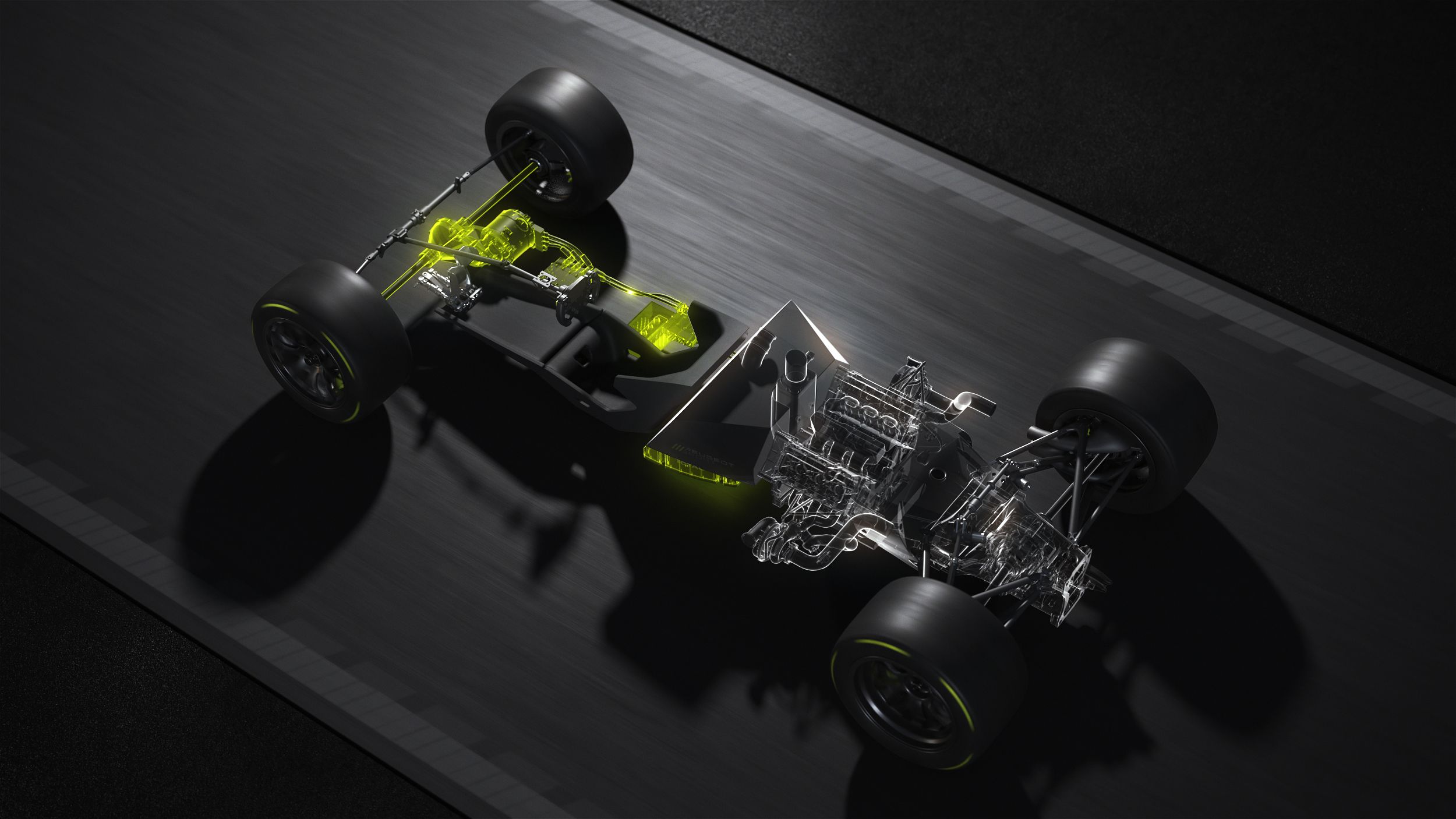French automaker Peugeot has announced its return to the 24 Hours of Le Mans with a hybrid prototype. Powered by a gasoline-electric powertrain that generates up to 939 horsepower, the hybrid is being developed in cooperation with oil company Total, Peugeot's historic motorsport partner. Peugeot will return to Le Mans in 2022, 10 years after its last race at Circuit de la Sarthe.
While its previous Le Mans racers, the 905 and 908, featured V-8 and V-12 power, the upcoming hybrid will incorporate a V-6 mill.
The mid-rear-mounted V-6 will be paired to a front-mounted motor generator unit good for 272 horsepower. Like all competitors in this category, the Peugeot hybrid will feature all-wheel drive. The hybrid powertrain will mate to a sequential seven-speed gearbox.
Peugeot HYBRID4 500KW specifications
|
Engine |
2.6-litre, twin-turbo, V-6 |
|---|---|
|
Horsepower |
680 HP |
|
Electric powertrain |
front-mounted motor generator unit |
|
Electric horsepower |
272 HP |
|
Overall output |
939 LB-FT |
|
Transmission |
sequential seven-speed |
|
Drivetrain |
AWD |
That's because FIA regulations state that each car in this category must not exceed 670 horsepower. As a result, Peugeot will limit the engine's output to 408 horsepower, while the electric motor will only work at speeds above 75 mph. The FIA will allow Peugeot to run the V-6 at full power only at the end of straights when the battery is empty. That's when the electric motor will put out only 20 horsepower for a total output of 700 horses.
Granted, the race car will still be impressively fast at Circuit de la Sarthe, but it will run well below its capability.
The electric motor is powered by a quick-charging, high-capacity battery co-developed by Peugeot Sport and Saft, a Total subsidiary. Peugeot claims that the design combines durability with consistent performance and enables the battery pack to deliver maximum power quicker than other sources.
When will the Peugeot hybrid race car hit the track?
Peugeot will begin testing the hybrid in the real world at the end of 2021. For now, the race car is still being engineered and tested on the bench and in the simulator, a process that will continue through the first half of 2021. The car will make its official racing debut during the 2022 World Endurance Championship season in the LMH category. Short of Le Mans Hypercar, this class replaces Le Mans Prototypes and includes bespoke designs without homologation requirement. A Balance of Performance system similar to the one used by the GTE class will be applied to ensure parity between hybrid and non-hybrid models.
Peugeot will compete against Toyota and Scuderia Glickenhaus in this class. Aston Martin also announced plans to enter the series with a race car based on the Valkyrie.
Peugeot history at Le Mans
Peugeot's presence at 24 Hours of Le Mans can be traced back to 1926, but the brand's first notable performance came in 1937 through Emile Darl'mat. A Peugeot dealer who started customizing various models in the 1920, Darl'mat convinced Peugeot to build a small series of race cars based on the 402 and run them at Le Mans. Three cars were entered in 1937 and all of them took the checkered flag in seventh, eighth, and tenth place. Darl'mat return at Circuit de la Sarthe in 1938 and took fifth place. Domination from Bentley, Alfa Romeo, and Bugatti followed by the outbreak of World War II kept Peugeot away from new success and it took the French brand several decades to return as a top contender at Le Mans.
It happened in 1990, when Peugeot came up with the 905, a full-blown prototype powered by a 3.5-liter V-10 engine. Although it failed to finish in its maiden Le Mans outing in 1991, the 905 returned with a vengeance and took the outright win in 1992 and 1993. Peugeot retired from endurance racing at the end of 1993 in order to focus on Formula One and rallying, but returned in 2007 with a new prototype.
Now using a 5.5-liter V-12 diesel engine, Peugeot tackled the 2007 24 Hours of Le Mans with the 90 HDi FAP. The French proved competitive from their first outing, taking second place at Circuit de la Sarthe. The following year, Peugeot scored second- and third-place finishes but lost the win for the second time to Audi. Third time was a charm and Peugeot won at Le Mans in 2009, also scoring its third outright win in the process. The French team returned for the fourth time in 2010, but all three cars failed to finish the race despite setting the quickest qualifying times. 2011 was Peugeot's final year at Le Mans. Having switched to a new 3.7-liter V-8 diesel, the French finished second and third behind Audi.
Although it had developed a new version of the 908 plus a hybrid variant of the same car for the 2012 season, Peugeot canceled its racing program due to poor financial performance in 2011.




